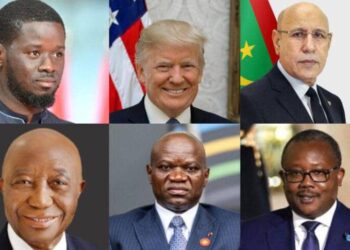By Ere-Ebi Agedah Imisi
Barely two months ago, the video of a mixed race kid who was speaking and engaging in a conversation in fluent Nigerian igbo language with his grandmother broke the internet. This sparked reactions, with some noting that the igbo dialect he was speaking (Umuneze) was not common, but rather a difficult one to learn. Many admired and celebrated his parents for the ability to preserve and pass down their local dialect despite the cultural difference.
Heritage Times (HT) recalls South African Afro-pop music duo formed in 1996, Mafikizolo. The duo rose to fame after they released their singles “Ndihamba Nawe kuphela”, “Kwela Kwela”, “Sibongile”, “Udakwa Njalo”. These singles are named in south African indigenous languages, thereby giving prominence to their cultural heritage.
Likewise, South Africa is home to numerous UNESCO World Heritage Sites, such as the Cradle of Humankind, Robben Island, and the Richtersveld Cultural and Botanical Landscape. These sites preserve important aspects of South Africa’s cultural and natural heritage, serving as educational and tourist destinations.
Africa, with its rich tapestry of cultures, traditions, and history, stands as a beacon of diversity and resilience. Yet, in the face of globalization and modernization, there looms the pressing question: Are African nations striving to preserve their cultural heritage? In exploring this query, we delve into the realms of food, clothing, and dialect, the fundamental pillars of African identity.
READ ALSO: Mozambique To Host Africa’s Industry Experts At 10th Mining & Energy Conference
Through Food
In Africa, food is not merely sustenance; it is a reflection of heritage, community, and tradition. From the savory aromas of West African jollof rice to the spicy flavors of North African tagines, each dish tells a story of centuries-old culinary craftsmanship.
Across the continent, efforts are underway to safeguard traditional cooking methods and recipes. In Nigeria, for instance, organizations like the Dangote and Nestle’ are championing the preservation of indigenous crops and culinary traditions because food is medicine; medicine is food. Similarly, initiatives such as South Africa’s Indigenous Food Network are working to revitalize the appreciation for native ingredients and cooking techniques.
However, the encroachment of Western fast food chains and the allure of convenience pose formidable challenges. In the battle to preserve Africa’s culinary heritage, education, advocacy, and grassroots movements play pivotal roles in nurturing a renewed appreciation for traditional cuisine.
Clothing: Threads Of Identity
African attire is a vibrant tapestry of colors, patterns, and symbols, a reflection of the continent’s diverse cultures and histories. From the intricately woven kente cloth of Ghana to the flowing robes of the Maasai people, traditional attire embodies a deep sense of identity and belonging.
In recent years, there has been a resurgence of interest in African fashion, both on the continent and globally. Designers are drawing inspiration from traditional textiles and techniques, infusing them with modern twists to create contemporary couture. This revival not only celebrates Africa’s sartorial heritage, but also provides economic opportunities for local artisans and designers.
Nevertheless, the influx of cheap mass-produced clothing from overseas threatens to overshadow indigenous textile industries. To counter this trend, governments and NGOs are promoting initiatives to support local craftsmanship, such as National Orientation Agency of Nigeria (NOA), Ghana’s National Folklore Board responsible for promoting patriotism.
Language
Language serves as the bedrock of cultural identity, encapsulating the collective wisdom, history, and worldview of a people. In Africa, where hundreds of languages are spoken, linguistic diversity is both a source of strength and a challenge.
While English, French, and Portuguese remain dominant languages of education and governance, indigenous languages are facing a decline in usage and transmission. Colonial legacies, urbanization, and globalization have all contributed to the marginalization of indigenous tongues.
Yet, grassroots movements are emerging to reclaim and revitalize African languages. In countries like Kenya and South Africa, efforts are underway to promote mother tongue education in schools and to preserve oral traditions through storytelling and language immersion programs.
Additionally, technology offers new avenues for language preservation, with initiatives like the African Language Technology Initiative (ALT-I) developing digital tools and resources to support African languages in the digital age.
Living In The UK With A Nigerian Outlook
Heritage Times HT spoke with Mrs. Chika Omeje, a mother of two who has resided in the United Kingdom for a duration of five years. She explained that despite her residency in the UK for this extended period, she remains steadfast in her conscious and deliberate efforts to uphold and preserve her cultural heritage. Furthermore, she diligently involves her children in this endeavor.
At the heart of Mrs. Chika’s cultural preservation efforts lies the kitchen, a place where flavors come alive and memories are made. “Food is the heartbeat of our culture,” she explains, as she chops vegetables for a pot of egusi soup. “Through cooking traditional Nigerian dishes, I’m not only nourishing my family’s bodies but also their souls.”
Indeed, the kitchen has become a classroom of sorts, where her children eagerly lend a hand in preparing meals that tell the story of their heritage. From the fiery heat of jollof rice to the comforting embrace of fufu, each dish serves as a gateway to Nigeria, a reminder of the flavors and traditions that binds them to their roots.
However, Mrs. Chika’s commitment to preserving Nigerian culture extends beyond the realm of food. Language, she believes, is another vital thread in the move to preserve her identity. Despite the predominant use of English in their surroundings, she ensures that her children are fluent in their native tongues, which in this case is igbo language.
“Language is the key to understanding our history and connecting with our ancestors, It’s a gift that I want to pass down to them the ability to communicate with their roots, no matter where life may take them.” she explains, her eyes shining with pride as her children effortlessly switch between languages.
Embracing The Future
Based on all facts available to us, we can conclude that African nations are indeed striving to preserve their cultural heritage, through the revival of traditional cuisines, the resurgence of indigenous fashion, and the revitalization of native languages. These efforts, driven by grassroots movements, government initiatives, and global advocacy, serve as testament to Africa’s unwavering commitment to honoring its past while embracing the future.



































